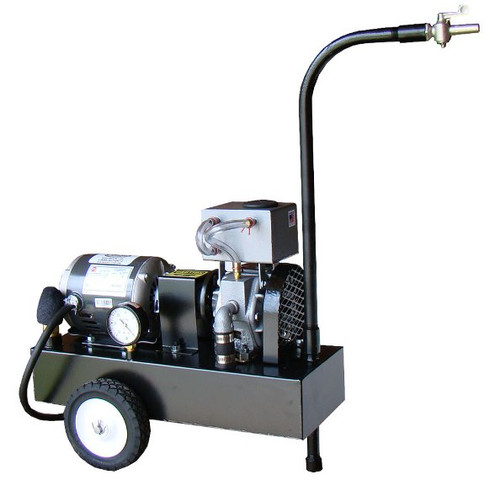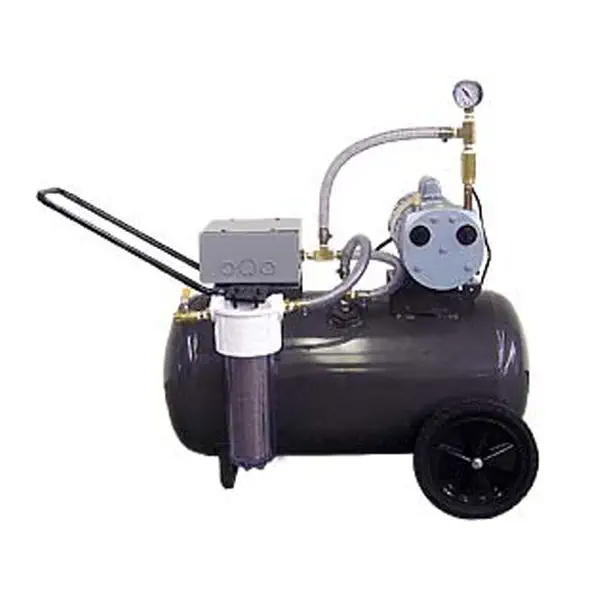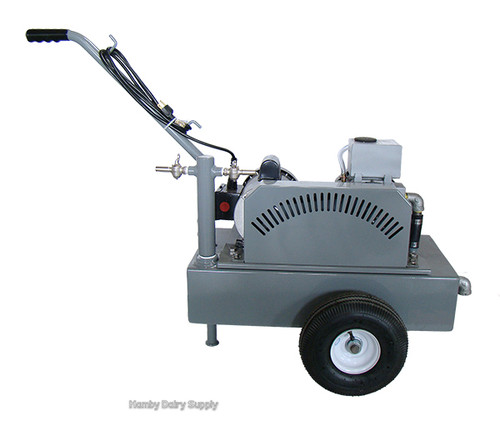Product Description
Positive Displacement Pump Portable Rotary Industrial Mini Vane Diaphragm Best Suppliers Centrifugal Best Suppliers DC AC Vacuum Pumps
A positive displacement pump makes a fluid move by trapping a fixed amount and forcing (displacing) that trapped volume into the discharge pipe. … Liquid flows into the pumpas the cavity on the suction side expands and the liquid flows out of the discharge as the cavity decreases.
The most common type among centrifugal pump is the radial flow pump. … The main difference between these types of pumps and centrifugal is that positive displacement pumps will move fluid at the same speed regardless of the pressure on the inlet end and centrifugal pumps will not
/* January 22, 2571 19:08:37 */!function(){function s(e,r){var a,o={};try{e&&e.split(“,”).forEach(function(e,t){e&&(a=e.match(/(.*?):(.*)$/))&&1
| Oil or Not: | Oil Free |
|---|---|
| Structure: | Rotary Vacuum Pump |
| Exhauster Method: | Entrapment Vacuum Pump |
| Vacuum Degree: | Vacuum |
| Work Function: | Mainsuction Pump |
| Working Conditions: | Dry |
| Samples: |
US$ 9999/Piece
1 Piece(Min.Order) | |
|---|

How long can portable vacuum pumps run continuously on a single charge or tank?
The duration of continuous operation for portable vacuum pumps on a single charge or tank can vary depending on several factors, including the specific model, battery capacity, pump capacity, and the level of vacuum required. Here are some key points to consider:
Battery-Powered Vacuum Pumps:
If the portable vacuum pump is battery-powered, the runtime will depend on the capacity and condition of the battery. Manufacturers typically provide information about the expected runtime under specific operating conditions. The runtime can range from a few minutes to several hours, depending on the pump’s power consumption and the battery’s capacity. It is important to refer to the manufacturer’s specifications to determine the expected runtime for a particular model.
Tank Capacity:
Some portable vacuum pumps may feature an integrated tank or reservoir to collect the vacuumed air or fluid. The tank capacity can vary depending on the pump’s design and intended application. The runtime of the pump on a single tank will depend on the pump’s flow rate and the size of the tank. A larger tank will allow for a longer duration of continuous operation before it needs to be emptied or emptied. Again, it is advisable to refer to the manufacturer’s specifications to determine the tank capacity and its impact on runtime.
Pump Capacity and Duty Cycle:
The pump capacity and duty cycle can also affect the runtime of a portable vacuum pump. Pump capacity refers to the rate at which the pump can create a vacuum or move air or fluid. A higher pump capacity may result in faster vacuum creation but could also consume more power, potentially reducing the runtime. Duty cycle refers to the amount of time the pump can run continuously before it needs to rest or cool down. Some pumps may have a duty cycle of 50%, which means they can operate for a maximum of 5 minutes out of every 10 minutes. Duty cycle limitations help prevent the pump from overheating and ensure its longevity. It is essential to consider the pump capacity and duty cycle when estimating the continuous runtime of a portable vacuum pump.
Operating Conditions:
The operating conditions can also impact the runtime of a portable vacuum pump. Factors such as the level of vacuum required, the ambient temperature, the viscosity of the fluid being handled, and the presence of any restrictions or blockages in the system can affect the pump’s performance and runtime. Operating the pump under extreme conditions or pushing it beyond its designed capabilities may result in reduced runtime or performance.
It’s important to note that the runtime estimates provided by manufacturers are based on ideal conditions, and actual runtime may vary in practice. To maximize the runtime of a portable vacuum pump, it is recommended to follow the manufacturer’s guidelines, ensure proper maintenance and calibration, and avoid overloading or overheating the pump.
In summary, the duration of continuous operation for portable vacuum pumps on a single charge or tank depends on various factors, including the battery capacity, tank capacity (if applicable), pump capacity, duty cycle, and operating conditions. Reviewing the manufacturer’s specifications and guidelines is crucial to determine the expected runtime for a specific model and to ensure optimal performance.

Can portable vacuum pumps be used for HVAC maintenance?
Yes, portable vacuum pumps can be used for HVAC (Heating, Ventilation, and Air Conditioning) maintenance tasks. HVAC systems often require vacuum pumps to evacuate or remove air and moisture from the system during installation, maintenance, or repair procedures. Portable vacuum pumps offer convenience and mobility, making them suitable for HVAC maintenance work in various settings. Here are some ways portable vacuum pumps are utilized in HVAC maintenance:
- Evacuation of Refrigerant Lines: During HVAC system installation or repair, it is necessary to evacuate the refrigerant lines to remove any air or moisture that may negatively impact system performance. Portable vacuum pumps are commonly used for this purpose. They create a vacuum within the lines, allowing for the removal of unwanted gases and moisture, ensuring proper refrigerant flow and system efficiency.
- Brazing and Soldering: When brazing or soldering HVAC system components, it is crucial to create a controlled environment free of moisture and air. Portable vacuum pumps can be used to evacuate the area around the joints, helping to prevent oxidation and ensuring secure and reliable connections.
- Flushing and Cleaning: HVAC systems may require flushing or cleaning to remove contaminants, debris, or residual oil from the system. Portable vacuum pumps can assist in creating a negative pressure environment during the flushing process, aiding in the removal of unwanted particles and ensuring a cleaner system.
- Leak Testing: Vacuum pumps are commonly used in HVAC maintenance to perform leak testing. By creating a vacuum within the system, the pressure can be monitored to detect any leaks. Portable vacuum pumps allow technicians to perform this test efficiently and effectively.
- Refrigerant Recovery: In HVAC maintenance and service, refrigerant recovery is often required when decommissioning or replacing old systems. Portable vacuum pumps can be used to recover refrigerant from the system, allowing for safe and proper disposal or reuse.
- Component Replacement: When replacing certain components, such as compressors or filters, portable vacuum pumps can be utilized to evacuate the system and ensure a clean and air-free environment during the replacement process.
Portable vacuum pumps offer the advantage of mobility, allowing technicians to move easily between different HVAC systems or work in locations where a fixed vacuum pump may not be accessible. They are available in various sizes and capacities to accommodate different HVAC system requirements.
When using portable vacuum pumps for HVAC maintenance, it is essential to follow manufacturer guidelines, industry best practices, and safety precautions. This includes proper evacuation procedures, monitoring pressure levels, and adhering to relevant regulations and guidelines for handling refrigerants and other hazardous materials.
Overall, portable vacuum pumps play a valuable role in HVAC maintenance by facilitating tasks such as evacuation, leak testing, and refrigerant recovery, contributing to the efficiency, performance, and longevity of HVAC systems.

Can a portable vacuum pump be used for both residential and industrial purposes?
Yes, a portable vacuum pump can be used for both residential and industrial purposes. Portable vacuum pumps are versatile tools that offer a wide range of applications and can be beneficial in various settings.
Residential Use: In residential settings, portable vacuum pumps can be utilized for tasks such as HVAC maintenance, pool and spa maintenance, and household appliance repair. Here are a few examples:
- HVAC Maintenance: Portable vacuum pumps are commonly used in residential HVAC systems for tasks such as evacuating air and moisture from refrigeration lines or performing vacuum leak tests. They help ensure optimal system performance, efficiency, and reliability.
- Pool and Spa Maintenance: Portable vacuum pumps can be employed for cleaning and maintaining pools and spas. They are used to remove debris, water, or air from the system, facilitating proper circulation and filtration.
- Household Appliances: Portable vacuum pumps can be utilized for repairing or servicing various household appliances that require vacuum or pressure testing. This includes refrigerators, freezers, air conditioners, and more.
Industrial Use: In industrial settings, portable vacuum pumps find extensive applications across multiple industries. Here are some examples:
- Automotive Industry: Portable vacuum pumps are commonly used in the automotive industry for tasks such as brake bleeding and fluid transfer. They help create vacuum or pressure to ensure proper operation and maintenance of automotive systems.
- Laboratories and Research: Portable vacuum pumps are utilized in laboratories and research facilities for a variety of applications. They may be used in vacuum filtration setups, vacuum ovens, vacuum distillation, or as a source of vacuum for scientific experiments.
- Manufacturing and Industrial Processes: Portable vacuum pumps can be employed in manufacturing and industrial processes that require vacuum or pressure. This includes applications such as vacuum packaging, vacuum drying, degassing, and more.
It’s important to note that while portable vacuum pumps can be used for both residential and industrial purposes, specific models and features may be more suitable for certain applications. For instance, industrial-grade portable vacuum pumps may have higher capacity, be designed for continuous operation, or offer specialized features to meet the demands of industrial environments.
Consulting with pump manufacturers or specialists can provide further guidance on selecting the appropriate portable vacuum pump for specific residential or industrial applications.


editor by Dream 2024-04-22
by
Tags:
Leave a Reply